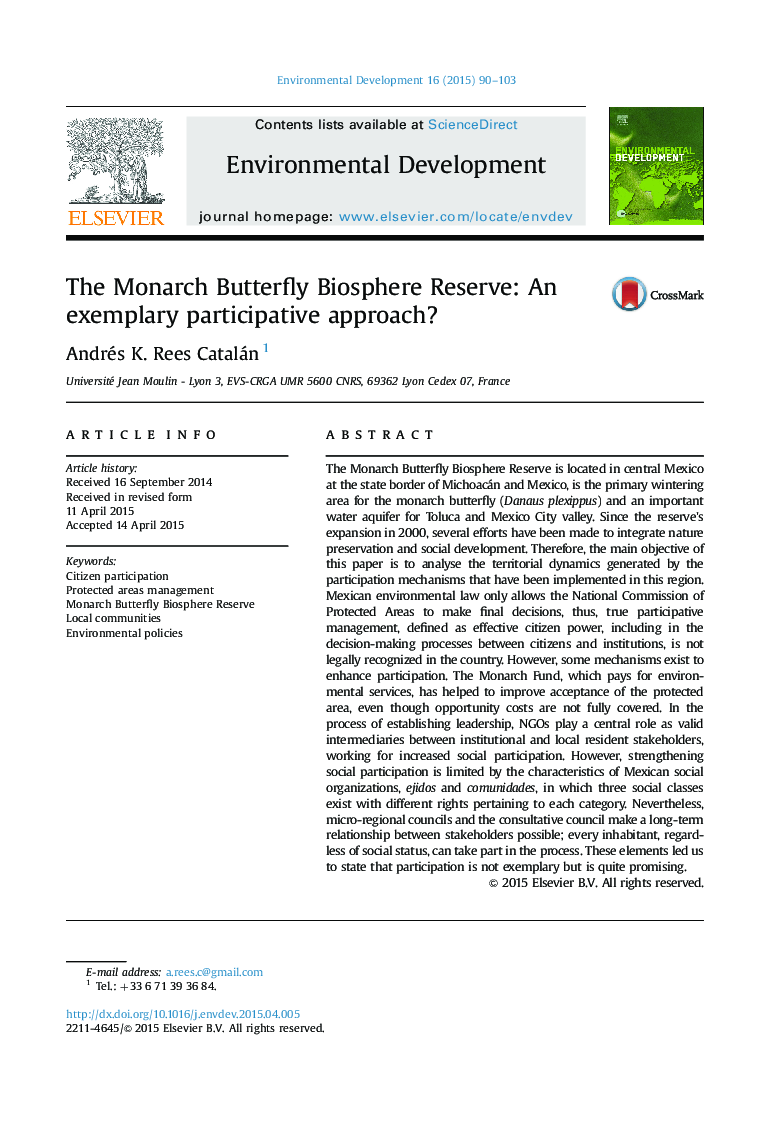| کد مقاله | کد نشریه | سال انتشار | مقاله انگلیسی | نسخه تمام متن |
|---|---|---|---|---|
| 4391415 | 1618085 | 2015 | 14 صفحه PDF | دانلود رایگان |
• To explain effective participative management, four different conditions will be discussed.
• Patrimonial funds contributes to greater social acceptance of environmental protection policies.
• The consultative councils contribute to build social learning, greater acceptance and improved participation.
• The participatory structures make a real territorial project possible.
The Monarch Butterfly Biosphere Reserve is located in central Mexico at the state border of Michoacán and Mexico, is the primary wintering area for the monarch butterfly (Danaus plexippus) and an important water aquifer for Toluca and Mexico City valley. Since the reserve׳s expansion in 2000, several efforts have been made to integrate nature preservation and social development. Therefore, the main objective of this paper is to analyse the territorial dynamics generated by the participation mechanisms that have been implemented in this region. Mexican environmental law only allows the National Commission of Protected Areas to make final decisions, thus, true participative management, defined as effective citizen power, including in the decision-making processes between citizens and institutions, is not legally recognized in the country. However, some mechanisms exist to enhance participation. The Monarch Fund, which pays for environmental services, has helped to improve acceptance of the protected area, even though opportunity costs are not fully covered. In the process of establishing leadership, NGOs play a central role as valid intermediaries between institutional and local resident stakeholders, working for increased social participation. However, strengthening social participation is limited by the characteristics of Mexican social organizations, ejidos and comunidades, in which three social classes exist with different rights pertaining to each category. Nevertheless, micro-regional councils and the consultative council make a long-term relationship between stakeholders possible; every inhabitant, regardless of social status, can take part in the process. These elements led us to state that participation is not exemplary but is quite promising.
Journal: Environmental Development - Volume 16, December 2015, Pages 90–103
